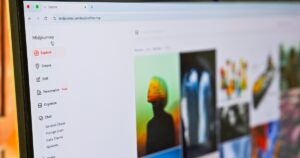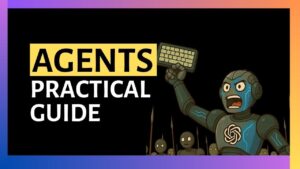Sam Altman Aims to Support Coders with AI Rather Than Replace Them

The Impact of Generative AI on Job Security
Concerns About Job Security
With the rapid advancements in generative AI technologies, many professionals are increasingly worried about their job security. Various studies indicate that a significant portion of jobs, including 54% of positions in the banking sector, are at high risk of being fully automated. This shift has sparked discussions about which professions may be affected first.
The Role of Coding in the AI Era
Predictions on Coding Jobs
There is speculation that coding could be one of the first areas significantly impacted by AI automation. Jensen Huang, the CEO of NVIDIA, has suggested that the role of coders may already be fading due to the proliferation of AI technologies. He encourages professionals to consider alternative career paths such as biology, agriculture, education, or manufacturing, which he believes will remain more stable amidst the automation wave.
The View from OpenAI
OpenAI’s CEO Sam Altman has shifted the narrative surrounding coding jobs. Initially, there were concerns that AI would entirely replace software engineers. However, Altman now emphasizes that the focus should be on enhancing the productivity of these professionals rather than replacing them entirely. He envisions a future where software developers become significantly more productive, potentially increasing their efficiency by up to tenfold.
"I’m less interested in whether coders will be replaced; rather, I focus on when their productivity will reach new heights," Altman noted.
The Demand for AI Skills
A recent report by Microsoft’s Work Trend Index highlights the growing importance of AI competencies in the workplace. Many recruiters now view proficiency in AI tools, such as Copilot and ChatGPT, as essential, leading to a remarkable 142-fold increase in LinkedIn users adding AI skills to their profiles. Despite the notable increase in demand for these skills, executives are also expressing concern about a talent shortage in their organizations, signaling that knowledge of AI is not only beneficial but increasingly necessary.
Insights from Industry Leaders
Bill Gates, co-founder of Microsoft, has offered his perspective on the future job landscape in the age of AI. He predicts that while AI may eventually take over many tasks, certain fields—including coding, biology, and expertise in energy—will remain resistant to complete automation. He argues that the complexity inherent in these fields makes them less likely to be entirely usurped by AI.
Embracing AI as a Tool
As we navigate this unprecedented era ushered in by AI, it is essential to understand that the technology will likely serve as a powerful tool to aid professionals rather than outright replace them. By automating redundant and repetitive tasks, AI has the potential to free up human workers to focus on more complex, strategic, and creative endeavors. In such a scenario, embracing AI tools and adapting to new technologies will be crucial for career longevity and growth.
Preparing for an AI-Dominated Future
As generative AI continues to evolve, professionals must stay proactive in enhancing their skill sets. Here are some steps to consider:
- Enhance AI Literacy: Understand the basics of AI technologies and how they apply to your field.
- Adaptation and Learning: Stay updated on the latest AI tools relevant to your profession and learn how to use them effectively.
- Explore Diverse Careers: Consider diversifying your skillset into areas less likely to be fully automated by AI.
In summary, while the rise of generative AI brings about uncertainties in job security, it also opens avenues for creativity, productivity, and new job roles that professionals can prepare for in the future. Embracing AI as a partner in work may well be the key to navigating the challenges and opportunities that lie ahead.





